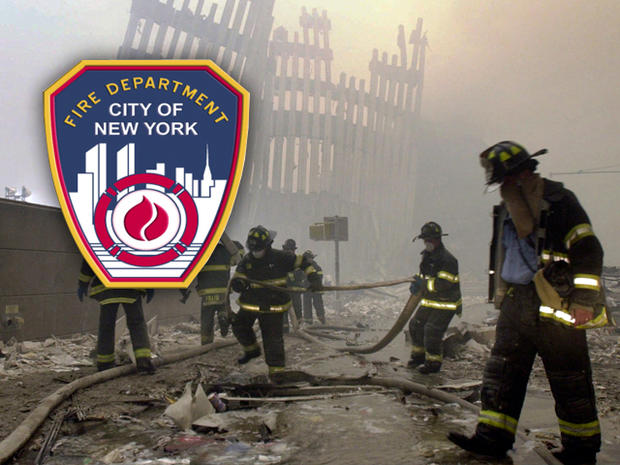Federal health officials propose free cancer care for 9/11 first responders
(CBS/AP) NEW YORK - First responders and residents who developed cancer after being exposed to the toxic ash that exploded over Manhattan when the World Trade Center collapsed on 9/11 would qualify for free treatment for the disease and potentially hefty compensation payments under a rule proposed Friday by federal health officials.
Controversial study shows higher cancer risk in 9/11 firefighters
Study shows rise of cancer in 9/11 firefighters
After months of study, the National Institute for Occupational Safety and Health said in an administrative filing that it favored a major expansion of an existing 9/11 health program to include people with 50 types of cancer, covering 14 broad categories of the disease.
People with any of the cancers on the list could qualify for treatments and payments as long as they and their doctors make a plausible case that the disease might be connected to the caustic dust.
The full list of cancers that would be covered can be found here, and include those of the respiratory system, digestive system, head and neck, skin, breast, childhood cancers, among others.
The decision followed a March recommendation by an advisory committee made up of doctors, union officials and community health advocates, who recommended that cancer be added to the $4.3 billion program. Previously, the aid effort has only covered people with a short list of mostly less-serious ailments, including asthma, acid reflux disease and chronic sinus irritation.
To date, there is little scientific evidence of elevated cancer rates connected to either the trade center dust or other toxins at the ground zero recovery site.
Some doctors and health advocates, however, have expressed concern about the presence of carcinogens in substantial enough amounts to create a risk. NIOSH director Dr. John Howard said in a statement that the agency had embraced all of the recommendations of the advisory panel, which had urged inclusion of a majority of the most common forms of cancer
"We recognize how personal the issue of cancer and all of the health conditions related to the World Trade Center tragedy are to 9/11 responders, survivors and their loved ones," Howard said.
The expansion proposal isn't final yet. The rule will be open for public comment for several weeks, or up to two months, before being finalized. It will still be open to revisions, or even outright abandonment, during that time.
There has been some concern that adding cancer to the list of covered conditions could put a severe financial strain on the program's limited resources. Congress capped funding for the program at $1.55 billion for treatment and $2.78 billion for compensation payments. Those amounts will remain unchanged even if many people file for benefits.
Some 60,000 people have already enrolled in 9/11 health programs for those who lived or worked within the disaster zone.
Sheila Birnbaum, the special master overseeing applications for compensation, has said she might have to prorate payments based on the number of people who apply and the severity of their illnesses.
